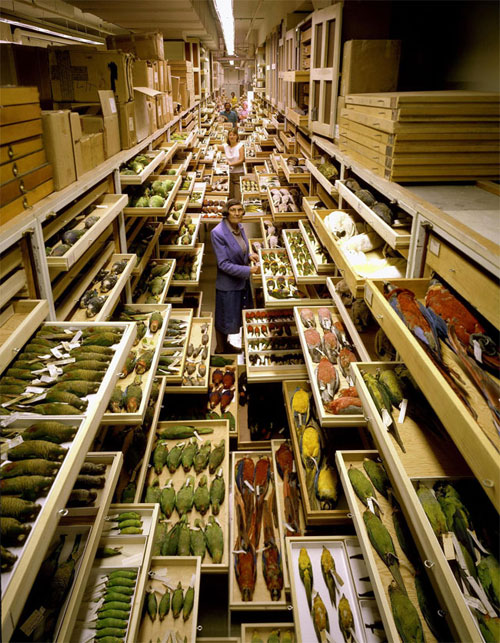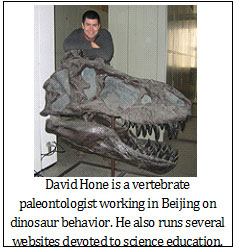
Source: National Museum of Natural History Bird Collection, Smithsonian National Museum of Natural History
Look closely at this picture below from the National Museum of Natural History.

Source: National Museum of Natural History Bird Collection, Smithsonian National Museum of Natural History
Each of those wooden drawers holds a different species of bird! In fact this museum houses one of the largest collections of birds in the world. This collection represents 80% of the world's diversity of birds.
How do scientists keep up with all the different species? The answer is taxonomy! Taxonomy is the science of classifying living organisms. It's not something that most people think about. Take a look at what this paleontologist has to say about why it's essential:

"Taxonomy is the field of research devoted to naming and describing living organisms - everything from bacteria and viruses to whales and flowers. It is an essential yet much underappreciated aspect of scientific research and without it huge branches of biology and other sciences would be near impossible. Taxonomists provide the basic vocabulary of biology if you like, defining each new species (individual words) and making sure there are accurate definitions of those species (like a dictionary) and records of those species, as DNA or actual specimens in museums so that everyone knows exactly which species is which and what other species it is related to. Without this kind of knowledge we cannot begin to do the simplest things with any degree of accuracy - if you do not know what species any given organism belongs to, then it becomes very hard to say anything meaningful about it.
How do you protect a given species if you don't even know what is, and what is not, a member of that species? Want to treat a snake bite? What species was it? Got a new drug from a rare frog, great! What frog was it? Are there any relatives that might yield similar compounds? Are you working on a single species of a bunch of them in your lab that are very hard to distinguish? A new insect is eating your crops? What is it? How can we kill it? Are there any close relatives we might kill by mistake that are actually beneficial? Want to track extinction rates over time? You will need to know what species can be identified in the fossil record. We can use some species as indicators of clean water, or to track global warming but only if we can reliably identify them and tell them apart from others.
Taxonomy is therefore an integral part of biology and science as a whole, reaching out into other fields almost unnoticed, but most especially medicine. As a subject it is fundamental to our understanding of the natural world and critical to future research. We must know what species we have and what they are to be able to continue to study everything from infectious diseases to pollution and the history of life. If we are going to save our planet, we have to know what is on there to start with."
Which of Dr. Hone's examples make the most sense to you? Record your thoughts using your notes to use in section 4.
Source for image and article on Dr. Hone: